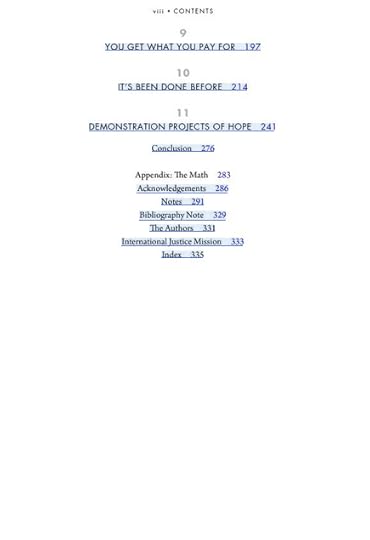What do you think?
Rate this book


368 pages, Hardcover
First published December 9, 2013
"But, the world overwhelmingly does not know that endemic to being poor is a vulnerability to violence, or the way violence is, right now, catastrophically crushing the global poor. As a result, the world is not getting busy trying to stop it. And, in a perfect tragedy, the failure to address that violence is actually devastating much of the other things good people are seeking to do to assist them."
"When we think of global poverty we readily think of hunger, disease, homelessness, illiteracy, dirty water, and a lack of education, but very few of us immediately think of the global poor’s chronic vulnerability to violence—the massive epidemic of sexual violence, forced labor, illegal detention, land theft, assault, police abuse, and oppression that lies hidden underneath the more visible deprivations of the poor.
Indeed, I am not even speaking of the large-scale spasmodic events of violence like the Rwandan genocide, or wars and civil conflicts which occasionally engulf the poor and generate headlines. Rather, I am speaking of the reality my IJM colleagues introduced to me in the years that followed my time in Rwanda—the reality of common, criminal violence in otherwise stable developing countries that afflicts far more of the global poor on a much larger and more persistent scale—and consistently
frustrates and blocks their climb out of poverty."
"With all this in mind, the long view of history seems to offer a powerful lesson: namely, that reasonably functioning justice systems are possible even in circumstances in which they do not currently exist or seem unlikely to emerge. Historically, criminal justice systems that protected the poor and the weak did not exist anywhere and, to contemporaries, always seemed highly unlikely. Now they do exist, in lots of places, for billions of people. But in each case, a pitched battle was fought to rescue the public justice system from abuse for private gain, from misuse for political power, from the dysfunction of neglect, and from slavish bondage to outdated, unprofessional, and ineffectual practices.
The vantage point of history allows us to see that the dysfunctions in the criminal justice systems of the developing world today are normal. That is to say, they are to be expected—not only because utterly dysfunctional criminal justice systems were imposed on most of these countries by occupying colonial powers, but also because it seems that every society must very intentionally and vigorously rescue its criminal justice system from dysfunction and abuse."
"For Americans, the earliest forms of formal policing seem to have emerged in the mid-nineteenth century, when cities got fed up with the way every dispute seemed to produce a rioting mob in the streets. In every country, the story of how policing emerged and why is organically connected to the distinctive story of the society at large—and for many historians, the distinctive story of U.S. policing emerges from the fact that American society was “more violent” than other western countries.
To be more precise, by the middle of the nineteenth century, it was becoming clear that Americans habitually rioted about almost everything: from political rivalries to street gangs’ territorial skirmishes; from racial tensions to labor disputes; from reform movements to denominational theological disagreements—there was almost no source of conflict in American society that did not bubble over into street violence. In the 1830s, thoughtful Americans like Andrew Jackson and Abraham Lincoln began wondering aloud if the young republic could survive “the spirit of mob law,” and the “disregard for law which pervades the country.”"

